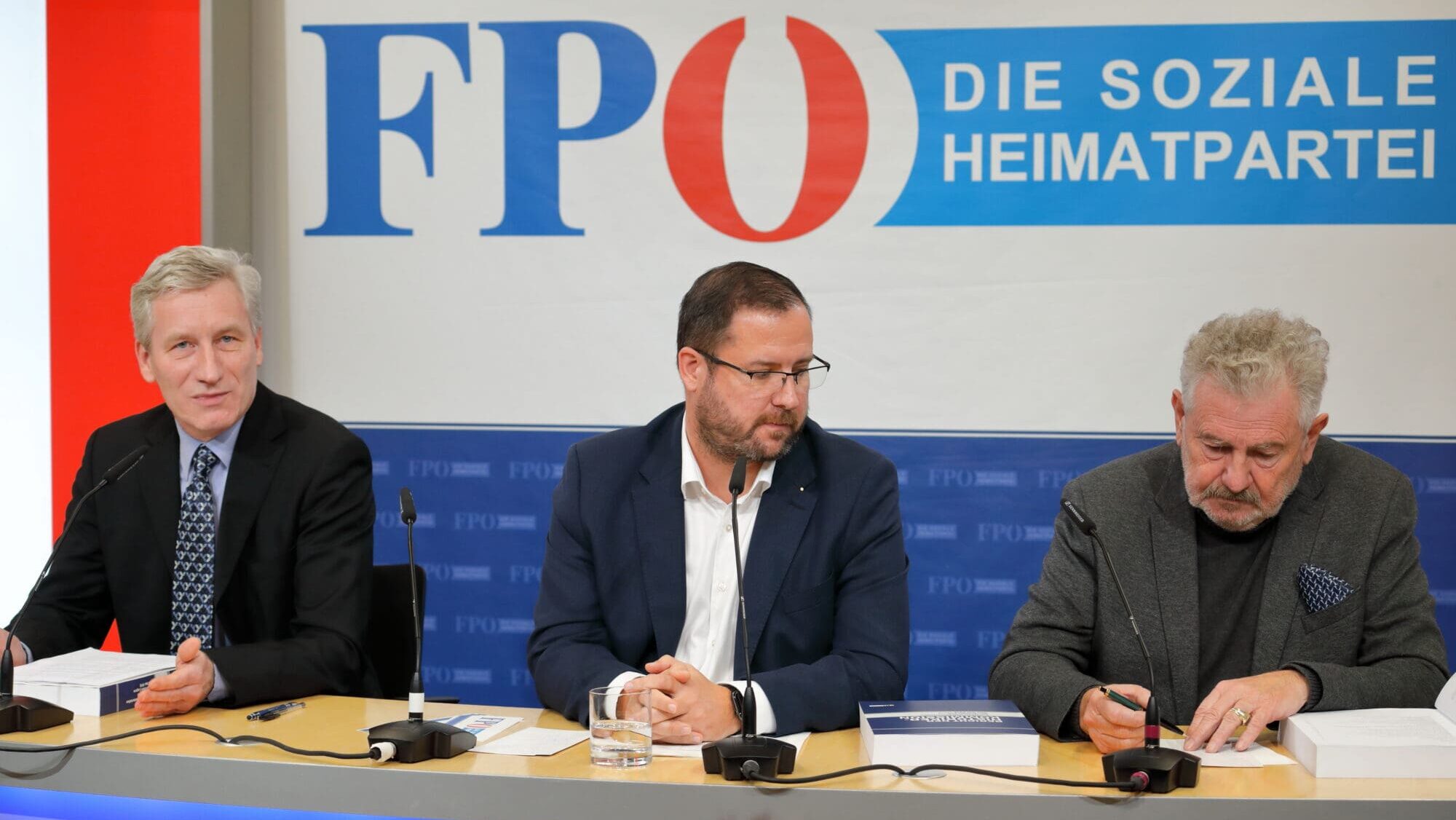
FPÖ Secretary General Christian Hafenecker (C), seen here in a photo from 2019 together with the coordinator of the Historians Commission Andreas Mölzer, and historian Thomas Grischany at a press conference regarding the release of the final report of the Historians Commission.
Photo: C.Stadler/Bwag, CC BY-SA 4.0, via Wikimedia Commons
Following their European parliamentary election victory, Austria’s national conservatives have renewed calls for an appointed European Union “remigration” commissioner.
While the Austrian government will send the country’s next representative to the European Commission, the Freiheitliche Partei Österreich (FPÖ) says its first nationwide win at the ballot box gives it the right to appoint someone to the role and to assign their portfolio of responsibilities.
“What I have noticed in the last few weeks during the election campaign is that there is above all a need for sensible migration policy, that there is a need for remigration,” FPÖ secretary general Christian Hafenecker told a press conference.
“We need a remigration commissioner,” he added, putting forward an FPÖ official to fill the proposed role. However, he did not specify exactly what this commissioner would do.
The call came just before it was revealed that the country’s interior ministry is reviewing 1,000 family reunification cases, in light of suspected corruption in Syria. Interior Minister Gerhard Karner said it has “been established that the system was being abused in some embassies and that documents were also forged,” including birth certificates.
The term ‘remigration’ has come to prominence in recent months, but it remains poorly defined. Left-wing media outlets claim that it means nothing less than the expulsion of millions of people of minority ethnic backgrounds from Western nations, even if they were born in those countries and have full citizenship. Others, however, say it simply means deporting foreign criminals who may have settled in a nation and acquired citizenship.
Earlier this year, a left-wing German publication falsely accused the nationalist AfD party of planning to “deport millions of Germans with a migrant background.” Correctiv, a partly Soros-funded investigative website, made claims about a top-level meeting between AfD officials and members of the European ‘ethnocultural transnational’ Identitarian Movement. It alleged the existence of a right-wing plot to deport millions of migrants, including those with German citizenship. The article resulted in hundreds of thousands of people taking to the streets around Germany to protest against ‘far-right extremism.’
However, their story soon unravelled. Junge Freiheit wrote that it was “now clear that at this private meeting only a restrictive migration policy was discussed, involving border control and the consistent deportation of rejected asylum seekers and illegal immigrants.”
AfD co-leader Alice Weidel later said that she rejected any idea of “withdrawing nationality from people who have acquired it on the grounds that they are of foreign origin.”
